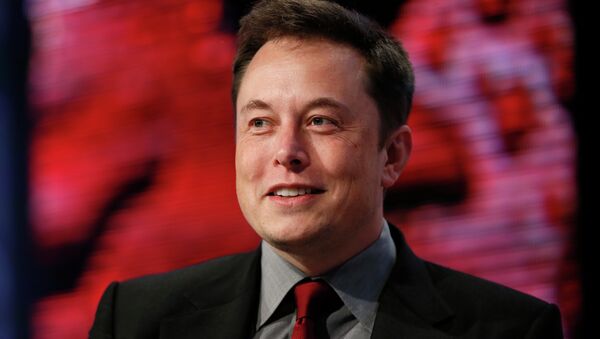Earlier this week, Musk tweeted a link to a Bloomberg piece titled "Elon Musk vs. the Trolls," accompanying it with a photoshopped image of himself buried beneath the covers and a note asking if "anyone [can] uncover who is really writing these fake pieces?"
Can anyone uncover who is really writing these fake pieces? Can't be skankhunt42. His work is better than this. https://t.co/Qs69AFMGE5
— Elon Musk (@elonmusk) 22 ноября 2016 г.
Bloomberg noted that Steward's stories were part of a growing tidal wave of articles released in recent weeks and months, often coming in the form of "shrouded online attacks, including phony op-ed pieces, websites with shadowy backers, and individuals who hide behind aliases." The business news agency's story was soon picked up other outlets, including Fortune, and by a throng of Musk-enamored tech news and environmentalism sites and blogs.
The billionaire's defenders have begun comparing the criticism against Musk to the controversy surrounding the so-called 'Fake News' websites which the US Democratic establishment has blamed for the Hillary Clinton's defeat in the presidential election earlier this month. Some have even made an effort to link Trump-supporting 'lobbyists and propagandists' to websites compiling unflattering news stories about Musk, including StopElonFromFailingAgain.com, a website sponsored by a conservative advocacy group.
For example, Space X's Falcon 9 rocket did explode in September, an accident believed to have set the private space company's spacefaring plans back months, if not years. Musk certainly didn't help his case in the aftermath of the disaster with the half-serious suggestion that a UFO may have caused the explosion, or with the paranoid claim that the mission may have been deliberately sabotaged.
Furthermore, multiple aerospace engineers and military experts speaking to Sputnik about the centerpiece of Musk's space program — his ambitious Mars colonization project, have criticized the plans as being either a 'massive PR trick' or failure to recognize scientific impossibility.
Nor have Musk's die-hard supporters been able to effectively counter detractors' main complaint – that Musk's companies, including Space X, Tesla Motors and SolarCity, have racked up nearly $5 billion in US government subsidies. That figure was arrived at by Los Angeles Times columnist Jerry Hirsch, who made his calculations over a year ago after adding up all the government incentives, grants, tax credits, discounted loans and environmental credits to Musk's companies and on the products they sell.
A year-and-a-half has passed since Hirsch wrote his original piece, and Musk continues to rack up federal funding, most recently from NASA, with little to show for it apart from grandiose projects and a few niche consumer products. But with the incoming Trump administration's very different approach to politics and spending priorities threatening Musk's taxpayer-supported private empire, some observers have warned that reality may soon catch up with him.




